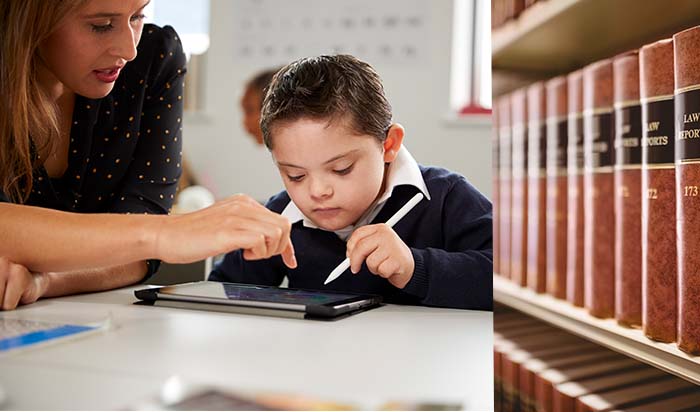How Parental Engagement Echoes Through Special Education
Amid the bustling hallways of American schools, beyond textbooks, classrooms, and innovative teaching techniques, there’s a force, often unseen but profoundly impactful – the involvement of parents. In the realm of special education, this engagement takes on heightened significance, creating ripples that touch every facet of a child’s educational journey.
Imagine a bridge that connects the world of home to the universe of school. Parental engagement is the foundation of that bridge, ensuring it stands strong, resilient, and unwavering. But what does this engagement truly entail in the tapestry of special education?
It begins with understanding. Parents, as primary caregivers, possess deep insights into their child’s strengths, challenges, and unique needs. When these insights are combined with the expertise of educators, the result is a tailor-made educational strategy that respects the individuality of every student. This partnership doesn’t merely aim for academic achievement; it aspires for holistic development, embracing both cognitive growth and emotional well-being.
In Seattle, a story unfolds that embodies this spirit. Jamie, a vibrant child with autism, thrives in his elementary school, not just because of his dedicated teachers but due to his parents’ active involvement. They collaborate with educators, sharing insights about Jamie’s interests, which are then woven into his lessons, making learning relatable and engaging.
The symbiotic relationship between schools and parents is enshrined in the American educational ethos. Legislation like the Individuals with Disabilities Education Act (IDEA) underscores the importance of parental rights and their role in crafting Individualized Education Plans (IEPs). These documents, pivotal in special education, are enriched by parental inputs, ensuring they resonate with the child’s needs both in school and at home.
However, cultivating this collaborative atmosphere is not always a straightforward endeavor. It requires open communication channels, mutual respect, and a shared vision. Schools across the U.S., from the bustling neighborhoods of New York to the serene suburbs of Georgia, are fostering this environment. Workshops for parents, regular feedback sessions, and joint school-home projects are bridging the gap, making education a collective endeavor.
Yet, the ripple effect of parental engagement goes beyond academia. Children, seeing the alliance between their teachers and parents, feel a sense of security and belonging. They understand that they’re not navigating the challenges alone; they have a robust support system cheering them on at every step.
In essence, parental engagement in special education is a testament to the age-old adage, “It takes a village to raise a child.” As American schools and families continue to strengthen their bonds, they’re not just shaping educational pathways; they’re crafting stories of success, resilience, and boundless potential.



